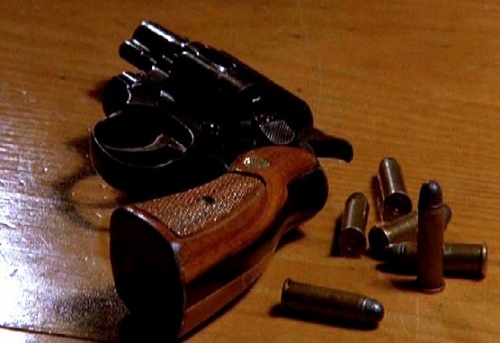In Wit
 ness, this relationship is between Samuel and his grandfather, Eli. Because the characters are Amish, they are used to a patriarchal society. The older generation of men are supposed to have the most knowledge because they have experienced the most since they have lived longer. Eli tries to teach Samuel about their culture and the difference between their world and the outside world in the scene when John Book's gun is on the table. Eli's message is that killing another man is wrong.
ness, this relationship is between Samuel and his grandfather, Eli. Because the characters are Amish, they are used to a patriarchal society. The older generation of men are supposed to have the most knowledge because they have experienced the most since they have lived longer. Eli tries to teach Samuel about their culture and the difference between their world and the outside world in the scene when John Book's gun is on the table. Eli's message is that killing another man is wrong.Since Samuel has witnessed the brutal murder of a man, his experience has surpassed his grandfather's. When asked if he would take a life, Samuel says he would only kill a "bad man" and continues to explain that he has seen what bad men do. Samuel knows more than his grandfather concerning this topic.
In Mosquito Coast, Allie Fox has taken his family and moved them out of society and into the jungle to a place he created. He is the leader of the family, and he is very smart (an inventor) so he is well respected by his children, especially his son Charlie.

Charlie's perspective of his father changes when Allie says that America no longer exists. Charlie knows his father is lying and is angered by the fact. When Allie burns down the church in the end, Charlie has to come up with an idea to save his family. Charlie sees that his father can no longer take care of the family and he has to step in to lead them.
Both boys have learned how to be men from their patriarch, but because of new experiences, the boys have surpassed them in their knowledge of the world.
Samuel's experience has not necessarily surpassed his grandfather's it has taken a divergent path into the world of the "English." Why not look at the scene itself and not just the gun.
ReplyDeleteWhat other father helps save Charlie and his family?